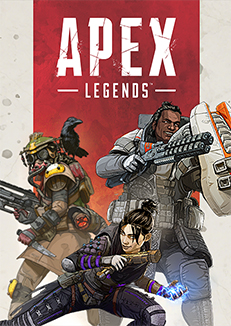In an unexpected turn of events, the popular battle royale game Apex Legends is facing significant backlash from its player base, following a controversial decision by developer Respawn Entertainment. The announcement of major changes to the Battle Pass system in the upcoming Season 22 has prompted a wave of negative reviews on Steam, as players express their dissatisfaction with the new direction.
Launched in 2019, Apex Legends has garnered a substantial following, thanks to its engaging lore and dynamic, fast-paced combat. However, the recent alterations to the Battle Pass system have ignited a firestorm of criticism. The forthcoming season will see the elimination of the option to purchase the Battle Pass with Apex Coins, instead requiring real money. Furthermore, the Battle Pass will be divided into two distinct purchasable parts, each comprising 60 levels. This effectively means that players will need to progress through 120 levels, a marked increase from the previous 110, to attain the same amount of content.
The pricing structure for the new Battle Passes has also been unveiled. The Premium Pass will be available for $9.99, while the Premium+ Pass will be priced at $19.99. This pricing strategy has not been well received, with many players feeling that it imposes an unfair financial burden on the community. As a result, there has been a surge in negative reviews on Steam, with 1,449 negative reviews recorded on 9 July alone, causing the game’s recent review score to plummet to “Mixed”.
The Apex Legends subreddit has mirrored this discontent, with numerous posts criticising the changes and some players declaring their intention to uninstall the game. This reaction indicates a significant portion of the player base is deeply unhappy with the new Battle Pass model.
Controversial Changes in Season 21
The current season of Apex Legends has not been without its own controversies. Season 21 introduced adjustments to the Ranked Rewards system, returning to a previous model where players earn an animated badge if they achieve the same rank in both splits of the season. Players ending the season with different ranks receive a static badge reflecting the higher rank attained.
Additionally, the mid-season patch for Season 21 brought buffs to the legends Wattson and Ash, enhancing their gameplay effectiveness. Wattson’s shield regeneration ability received a boost, while Ash’s Ultimate ability was improved by extending the portal distance. These changes have been well received by players who main these characters, noting a positive impact on their gameplay experience.
Conversely, the patch also included a significant nerf to Bloodhound, a key recon legend in the game. Bloodhound’s Ultimate ability no longer highlights enemies through smoke or gas, a feature that had been integral to the character’s meta since the game’s inception. This nerf has sparked concern among players about Bloodhound’s viability in competitive play, and there are fears that such changes could lead to a decline in player engagement in future seasons.
Community Response and Future Implications
The reaction to the Battle Pass changes has been swift and vociferous. Many players have threatened to quit the game, and the review bombing on Steam signifies a clear message of dissatisfaction to the developers. The Apex Legends community has a history of passionate responses to changes, and this instance is no different.
The impact of these changes on the game’s player base and overall reception remains to be seen. If the negative sentiment persists, Respawn and EA may need to reconsider their approach to in-game monetisation and player rewards. The challenge will be to balance the financial aspects of running a successful live service game with maintaining player satisfaction and engagement.
As the release of Season 22 approaches, all eyes will be on how Respawn addresses the feedback from its community. The gaming industry has seen instances where player backlash has led to significant revisions of unpopular updates, and it remains possible that Apex Legends could follow suit. For now, the developers face the delicate task of navigating this controversy while striving to retain the trust and loyalty of their player base.
In conclusion, the changes to Apex Legends’ Battle Pass system have ignited a wave of criticism from the game’s community, highlighting the delicate balance between monetisation and player satisfaction. The coming weeks will be critical in determining how Respawn responds to this feedback and whether they can quell the dissatisfaction of their dedicated players. As the debate continues, the future of Apex Legends hinges on the developers’ ability to address these concerns and steer the game towards a path that satisfies both the business objectives and the expectations of its players.


